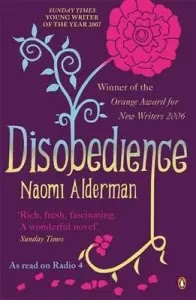Four Music-Related Books
I don't usually read so many books about music in such a short period of time, but I have read some good non-fiction titles on the subject this year, all of which conclude that working in the music industry is not good for your health.
Amy Raphael's A Seat at the Table: Women on the Frontlines of Music is a collection of 18 interviews with women working in the music industry. The interviews were mostly conducted with singers and songwriters from various genres in 2018-19, while composer Jessica Curry, producer Catherine Marks, and DJ Clara Amfo all reflect on similar issues of sexism and racism in the industry.
XEM THÊM :
Mig35 – Game bài đổi thưởng dành cho dân chơi
In some ways, Alison Moyet and Tracey Thorn's experiences gaining fame in the 1970s and 1980s are a world away from those of today's musicians who face the pressures of social media, #MeToo, and declining album sales due to the rise of streaming, but there are some frustrating similarities, such as not being taken as seriously as their male counterparts. Raphael has clearly put a lot of thought into the range of interviewees in this collection, and it would be interesting to compare it to her 1995 companion book 'Never Mind the Bollocks: Women Rewrite Rock,' which includes interviews with Debbie Harry, Courtney Love, and Bjork, among others.
Ian Winwood's book Bodies: Life and Death in Music makes a compelling case for how addiction and mental health issues have become dangerously normalized in the music industry. For several years, Winwood worked as a music journalist for Kerrang! magazine, where he witnessed firsthand the toll this lifestyle takes on those involved and documented his own mental health and addiction issues.
With artists relying more than ever on constant touring for a steady income, 'Bodies' exposes how being on the road is about the worst possible environment for anyone feeling even remotely fragile. In addition to the many heartbreaking stories, Winwood rightly praises Biffy Clyro for defying the odds and avoiding the path to burnout and self-destruction by taking time off from touring when necessary. Winwood's central thesis, which is strongly argued, is written with great courage.
Exit Stage Left: The Curious Afterlife of Popstars by Nick Duerden is another collection of snapshot interviews, this time with popstars who have long since left the spotlight, a sort of "where are they now?" compendium. Duerden covers a fairly broad range of pop and rock acts, including David Gray, The Darkness, Shaun Ryder, Paul from S Club 7, Chumbawumba, Suzanne Vega, and Billy Bragg, and career trajectories include hit wonders, Difficult Second Album syndrome sufferers, novelty acts, and those who simply fell out of fashion in a notoriously fickle industry that is only interested in chasing after the next big thing.
Some of those interviewed look back fondly on their time in the spotlight and are content with working on the nostalgia circuit, while others are bitter or resentful of how they were treated at the time or have attempted to reinvent themselves completely since their first flush of fame. With over 30 artists and bands covered, the interviews are brief and bittersweet, and I can't help but wonder if the most interesting stories are told by those who would never agree to be interviewed for a book like this.
Moving away from the excesses of pop music, I've been reading Jonathan Noble's That Jealous Demon, My Wretched Health: Disease, Death, and Composers, which looks at the physical and mental health of 70 composers. 'That Jealous Demon,' from Mozart's numerous ailments throughout his youth to Beethoven's deafness and Schumann's possible bipolar disorder, is highly detailed and also full of the sort of trivia that might occasionally be useful for answering questions on University Challenge.
Noble is a retired surgeon, so he can consider how accurate some of the reported diagnoses were and how some might have fared with medical treatment today. This dense but fascinating book provides a unique perspective on the lives of great composers and how their health affected their work.
READ ARTICLES:




.jpg)


Comments
Post a Comment